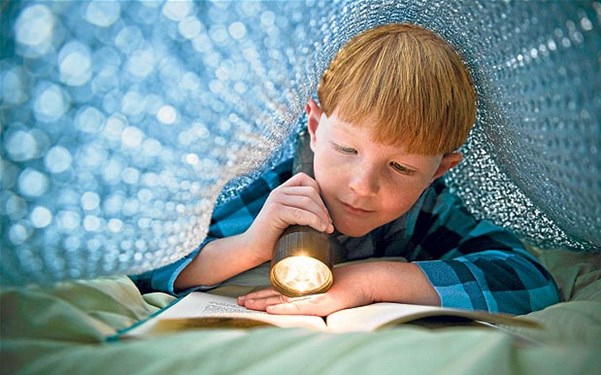In these days of exciting technology, multiple distractions and instant gratification, it can be easy to let reading slip down the list of priorities for your school-aged child. Yet it forms the basis of everything we need to learn to take our place in society as a useful, sociable functioning adult. Reading can be enormous fun and a great way to discover other worlds and find out about things far out of our daily spheres of knowledge and experience.
Children’s books are a great way to keep kids occupied and learn about the world at the same time. Studies have shown that children who read a lot tend to have better writing and reading skills than those who do not. Children who have had easy access to books at home from an early age also often demonstrate better vocabularies and understanding of the world around them. Many families make the bedtime story a ritual that both kids and parents look forward to daily and this can foster a lifelong love of good books and literature. Older children can often take great pleasure in being allowed to read alone for a short time in bed at night before the lights are turned out.
Following a set of characters from the start to the end of a story can also children handle similar situations that might crop up in their own lives. Settling an argument with a friend, for example, or learning how to care for a new pet. Stories can also help children of all ages deal with largerlife changes like moving house or welcoming a new brother or sister. Children’s books can introduce concepts and ideas in a way that is dynamic and exciting. They can bring the past to life too; how much more interesting would it be it to study for a history exam by reading an account written by a child who lived through the Second World War instead of simply ploughing through a dry old textbook?!
It is important to choose the right books for your child. First of all, consider their age – books tend to be categorised by age, so that the topics covered, length and language used are appropriate and accessible. If you are unsure where to start, ask a librarian or teacher for help. You might like to ask other children’s parents what has gone down well in their families.
Think about things that interest your child, such as music or sport, and look for stories that feature those interests. This can be a big help in getting older reluctant children to pick up a book. Favourite TV characters can also be a big draw, or books that have been made into popular children’s films. Ultimately, getting children to read more will help them comprehend the written word, analyse how it makes them feel and lead them towards independence and adult life.

